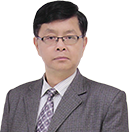首页> 考研资讯 > 正文
2020考研翻译:英语技巧之被动语态法
在英译汉中,通常将英文的被动语态句进行灵活的转换,以翻译出符合汉语表达习惯的译文。考研英语中有关被动语态的翻译方法一般有下面几种。
第一种,被动语态的动作发出者由by引出时,采用主宾颠倒的方式,即把by后的动作发出者作主语,英文原句中的主语作宾语。
1)Effective measures should be taken by the government to solve the problem timely .
2)During this transfer , traditional historical methods were augmented by additional methodologies designed to interpret the new forms of evidence in the historical study .(1999,73)
第一个例句中包含被动语态should be taken,且有by引出动作的发出者,按照考研翻译的要求,可以翻译为:“政府需要采取有效的措施来及时地解决这一问题”。第二个例句谓语部分使用了被动语态were augmented by 。主语是traditional historical methods ,介词by引出施动者。因此此处也可以将主宾颠倒,翻译为主动形式,即“新方法充实了传统的历史研究方法”,整句话的参考译文为“在这种转变中,历史学家研究历史时,那些解释新史料的新方法充实了传统的历史研究方法”。
真题中出现过多次需要如此处理的被动语态,相对来说比较简单。
第二种,翻译成无主句,即将被动结构中的主语翻译为汉语的宾语。多为动作发出者一目了然或者不需要挖掘出动作发出者的情况。
1)Legal steps should be taken to reduce the high rates of traffic accident .
2)Television is one of the means by which these feelings are created and conveyed -- and perhaps never before has it served so much to connect different peoples and nations as in the recent events in Europe . (2005,46)
第一个例句中包含被动语态should be taken,此处可以转换成主动,翻译为“必须采取法律措施来降低交通事故的高发率”,这是符合汉语表达习惯的。第二个例句的定语从句by which these feelings are created and conveyed中,包含被动结构are created and conveyed 。该被动结构的主语是these feelings 。若按字面翻译,“通过电视这个手段,这些感受被引发和传递”,这显然不符合地道汉语表达。动作create and convey和these feelings之间是逻辑上的动宾关系,因此可以翻译为 “引发和传递这些感受”。将其与定语从句合并之后,即得到译文“引发和传递这些感受的手段”。整句话的参考译文“电视是产生和表达这些感受的手段之一——在欧洲近来发生的事件中,它把不同的民族和国家连在一起,其作用之大,前所未有”。
第三种,英语原文的主语在译文中仍作主语,即去掉“被”字,用主动的形式表达被动的意思。
1)With the development of social economy , cultural traditions must be kept .
2)The behavioral sciences have been slow to change partly because the explanatory items often seem to be directly observed and partly because other kinds of explanations have been hard to find .(2002,62)
第一个例句中包含被动语态must be kept,翻译成“文化传统必须被保持”很别扭,试着去掉“被”字,译文就成了“文化传统必须保留”,而这完全符合汉语表达习惯。第二个例句中包含被动语态be directly observed,字面意思为“直接被观察到”,显得较呆板,去掉“被”字后反而更符合汉语的表达:“解释的依据似乎可以直接观察到”。整句话的参考译文为“行为科学之所以发展缓慢,部分原因是用来解释行为的依据似乎往往是直接观察到的,部分原因是其他的解释方式一直难以找到”。
第四种,译成汉语的被动句。汉语的被动句不只限于带有“被”字句。还有其它一些汉语特有的表达被动的手段,如 “受、受到、遭到、让、给、把、挨、由、得到、加以、得以、为......所......、由......来......”等。
1)Over the years , tools and technology themselves as a source of fundamental innovation have largely been ignored by historians and philosophers of science .(1994, 73)
2)When that happens , it is not a mistake : it is mankind’s instinct for moral reasoning in action , an instinct that should be encouraged rather than laughed at .(1997,75)
第一个例句中包含被动语态have been ignored,并且出现了by引出动作发出者,只是此处若采取主宾颠倒的方式,将by后的动作发出者翻译成主语,则会出现这样的译文:“多年来历史学家和科学思想家们在很大程度上忽视了作为根本性创新源泉的工具和技术本身”,不是特别通顺;若采取翻译成被动句的方式,更符合汉语表达习惯:“工具和技术本身作为根本性创新的源泉,多年来在很大程度上被历史学家和科学思想忽视了”。第二个例句中这个句子中有两个被动语态:should be encouraged和rather than (be) laughed at。按照汉语表达习惯,可以翻译为“得到鼓励、受到鼓励”,和“受到嘲笑、遭到嘲笑”。整句话的参考译文为:“这种反应并不错,这是人类用道德观念进行推理的本能在起作用。这种本能应得到鼓励,而不应遭到嘲笑”。
第五种,增加主语,即将英文被动句翻译成汉语的主动句,适当增添一些不确定的主语,如:人们、有人、大家、我们等。这种翻译方法多用于“It+be+过去分词+that”这样的句型。
But his primary task is not to think about the moral code , which governs his activity , any more than a businessman is expected to dedicate his energies to an exploration of rules of conduct in business .(2006,49)
此例句被动语态体现在“a businessman is expected to …”,此被动结构并未出现其主语,但翻译成“商人们被期待去......”不符合汉语表达习惯,可以通过增加主语“人们”来翻译。即“但是他的首要任务并不是考虑支配自己行动的道德规范,就如同人们不能指望商人专注于行业规范一样”。
考研翻译中被动语态的真题举例:
The behavioral sciences have been slow to change partly because the explanatory items often seem to be directly observed and partly because other kinds of explanations have been hard to find .(2002,62)
But his primary task is not to think about the moral code , which governs his activity , any more than a businessman is expected to dedicate his energies to an exploration of rules of conduct in business .(2006,49)
以上两个真题例句中分别包含了被动语态be directly observed和is expected。由于被动语态是考研英语翻译的重要考点之一,如果不做任何处理,直接简单翻译成“被”字句,不但有可能会导致译文不通顺,而且还会有扣分的危险,如果将例句的be directly observed和is expected直接翻译成“......(可以)直接被观察到”“(商人)被期待......” 则不太符合汉语表达习惯。因此,掌握必要的英文被动语态翻译方法是必要的。
相关推荐
Copyright© 2009-2020 北京学之府教育科技有限责任公司 (xuefu.com) All Rights Reserved
















